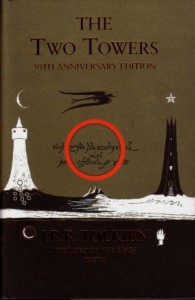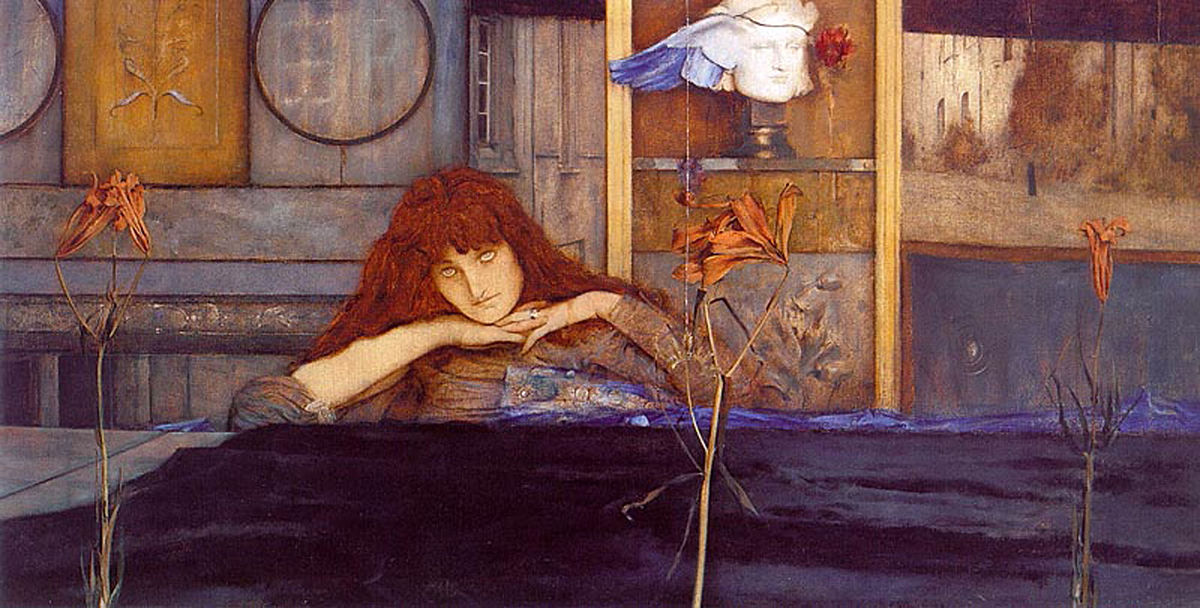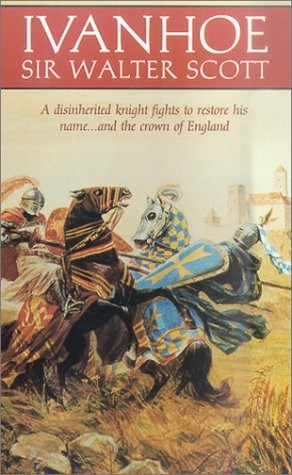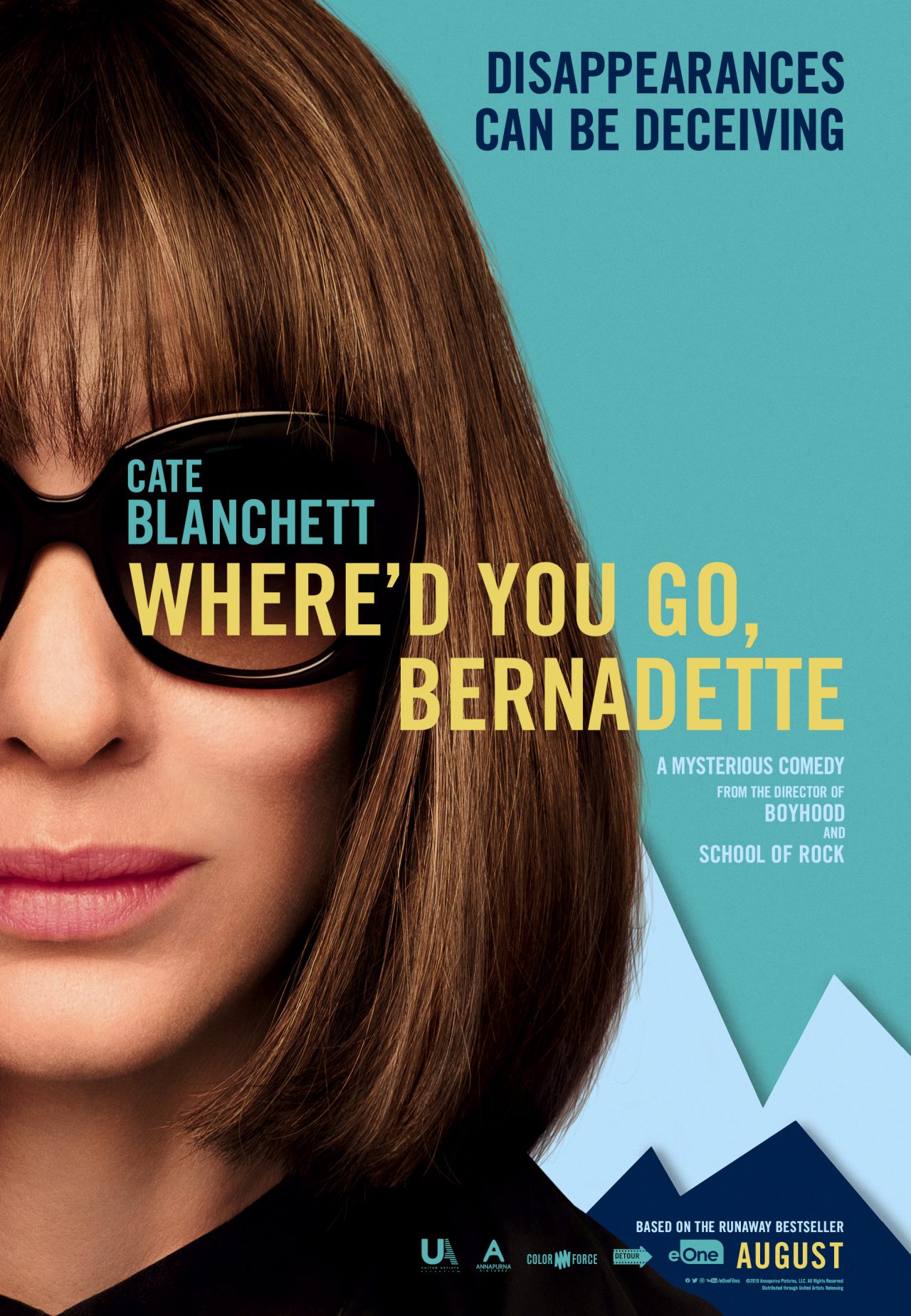The Two Towers
 The Two Towers is a hard road in more ways than one. It’s not just hard for the characters, with their difficult moral choices and their difficult relationships to navigate and difficult terrain to travel over. It’s hard for readers — or for me, at any rate.
The Two Towers is a hard road in more ways than one. It’s not just hard for the characters, with their difficult moral choices and their difficult relationships to navigate and difficult terrain to travel over. It’s hard for readers — or for me, at any rate.
Frodo and Sam don’t even appear until several hundred pages in. Many of the conversations and landscape descriptions (and there are many!) are detailed enough to slow the pace significantly. (I felt like a lawn mower trying to work its way through overgrown, damp grass at times.) And the general darkness of the book’s atmosphere has always been a struggle for me.
As an interesting side note, it has always seemed quite strange to me that the movie version of this book is what my husband and I grabbed to bring to the hospital to watch when I was in labor for our second child, but there it is. Mercifully, it was a short labor, and my sunny daughter was born during the gathering storm of troops assembling at Helm’s Deep and orcs marching to slaughter them.
This time there was no labor. Just the labor of reading. I learned recently that Tolkien himself got bogged down in the writing of this book and set it aside for two years. But I pressed on, and now I’m ready to launch into the last book.
I was struck by some of the changes between book and movie, so that’s what I’ll write about here. I’m not a stickler for cinematic accuracy when movie versions of books are created. The two genres are so different that I understand why directors change things. In the case of The Two Towers, it had been long enough since I read the book that I didn’t keep a mental list of plot and character changes the movie makes. But I’m rereading the books to reclaim them from the movie experiences that have dispossessed me (to be melodramatic about it) of my own imaginative conceptions of the story, and some of the changes really strike me. They underscore aspects of our culture.
For instance, age. None of the main characters in the book are young, vital, beautiful people. They are all 50 or over. Frodo and Sam have some serious life experience under their belts. Aragorn is weathered and wise from long experience protecting the borders. Boromir and Faramir. Gandalf. All older. Legolas (“of the woodland realm”) is sort of ageless, but he has the gravity of someone who has lived long. What would a movie featuring late-middle-aged characters fighting orcs even look like?
Then there’s Faramir. I like him in the book, and I like “him” in the movie. But the two don’t resemble each other. The Faramir of the book is wise and well-read, and he is not tempted by the ring. I read one review that said he’s not a believable character because he’s not morally tempted by it. But I thought he was believable in the terms of the story. He must be turning in his fictional grave.
Plot changes. The Two Towers ends after the confrontation with Shelob, and before Sam goes after Frodo. The movie version concludes before the Shelob episode. In the book, there’s nothing about Frodo being deceived by Gollum so that he sends Sam packing. That scene is a real heartbreaker in the movie. What is accomplished by it?
I have other thoughts about the book, thoughts that don’t have anything to do with the movie. I really like watching Frodo’s strength of character and wisdom emerge. It’s a book about finding your way among tough choices, and I like the way those moments of choice are depicted. The characters become aware of themselves as free entities, separate from the alternatives they face. Really it’s a book about the relationship between identity and choice.
It’s also a book about evil. Tolkien has been faulted for being too black and white in his conceptions of evil and goodness. But I don’t think so. It’s true that the bad characters are all bad, beyond hope (even Gollum, for whom we’re encouraged to feel grace and pity). Sauron’s evil is depicted in his alliances, his destructiveness, and above all his will to dominate and to injure. But the amazing thing is that “good” people are tempted by his ring. Boromir. Galadriel. Even Bilbo.
It’s not because they want to become like the Dark Lord. It’s because they have a similar root of desire for power and significance. That’s not a simplistic picture of goodness and evil.
Onward ever onward. The Return of the King is next on the list. The Two Towers is the long narrow bridge from The Fellowship of the Ring to The Return of the King, and I’m glad to have made it across.



3 Comments
hopeinbrazil
Good review. I, too, preferred the Faramir of the book. Unlike you I’m working my way through the trilogy for the very first time. I am still waiting for some down time to devote to Return of the King. Maybe I’ll just have to plunge in.
Barbara H.
I was hoping to revisit these books via audiobook, but audible.com only has dramatized versions at about 4 hours per recording rather than recordings of reading of the books. I’m not sure why besides the length of them, but I was disappointed. I’d love to revisit them some time but probably not in the near future.
Janet
Have you tried the library? That’s where we found the recordings we’ve been enjoying.